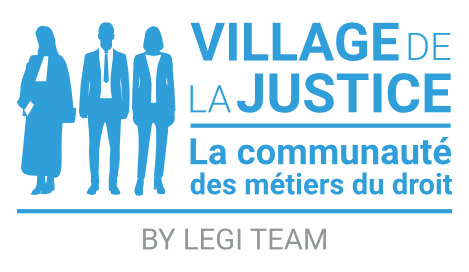Foreword The authors underline that this article is a nearly literal translation of a French article entitled “De l’asymétrie d’information à l’équilibre de la charge de la preuve”. It is therefore stylistically imperfect and may contain concepts of French law that are difficult to translate, but simply aims to include non-French speakers in the conversation about this important topic.
An international coalition of eleven associations indeed alleged that the group’s 2018, 2019 and 2020 Vigilance Plans [2] (in French the “plan de vigilance”), do not reflect a reasonable and effective vigilance, as the law requires. But whether one sees this law as an insufferable intervention in commercial confidentiality or as a welcome breakthrough in corporate accountability for the non-respect of human rights, the transposition of human rights into positive law is undoubtedly a genuine social and legal (r)evolution that interrogates on the adequate way to adapt human rights principles to the French legal landscape.
In this respect, the Corporate Duty of Vigilance Law symbolised, since the inception of the proposed law in 2013, the collective realisation that a lengthy, more complex, and obscure supply chain reinforces the impunity of Western transnational companies by reducing their accountability or involvement in human rights abuse. Interest in the project was spurred by the indignation towards the Rana Plaza Accident, where the collapse of a structurally unsound garment factory housing the subcontractors of Western ready-to-wear apparel brands caused the tragic death of 1,135 factory-workers and injured 2,500 more.
Many scholars had then pointed at the difficulty to transpose human rights principles, traditionally tied to public international law, to the already challenging French civil liability law [3]. We however question the necessity to make such a legal (r)evolution fit into preestablished jurisprudential concepts, given the extended power of the judges not only to distribute the burden of proof, but also to interpret and reinterpret laws that are, as is presently the case, incomplete, imprecise or ambiguous. Nothing indeed guaranties, and we would even argue the opposite, that current legal practices will fit the degree of nuance and balance required in human rights law cases. Either way, the integration of human rights soft law in national hard law has already begun. An increasing number of states such as Germany, Norway or the Netherlands have voted their own laws on the duty of vigilance [4], suggesting a growing interest in the topic that prompted the European Commission to issue, partly to prevent fragmentation, a proposal for a directive on Corporate Sustainability Due Diligence on February 23rd 2022 [5].
But as ambiguous as the letter of the French law on Corporate Duty of Vigilance is alleged to be, we claim that balance is at the core of its spirit and mechanisms. Indeed, the law requires the creation of a Vigilance Plan implemented in an effective manner through reasonable measures, which includes a comprehensive risk-mapping and mitigation of the most serious breaches through mechanisms to alert and collect reports, and to monitor and evaluate the effectiveness of the measures taken. Yet, first and foremost, the law requires the publication of this Vigilance Plan and its measures of implementation. Given that the information delivered therein is exclusively maintained by the company involved, and that the claims of the plaintiffs fully rely on this information, it is therefore obvious that a main consequence of the publication requirement is to compensate the natural information asymmetry between the parties to ensure the readiness of the case for the judge. It would indeed be impossible, or at least very complicated, not only for the plaintiffs to prove that the measures taken by the company were insufficiently effective or reasonable to prevent the damage from happening [6] but also for the judges to adequately address the demands of Pillar III of the United Nations Guiding Principles on Business and Human Rights [7]on the need for increased access by victims to judicial remedy [8] the French state must implement. Indeed, the UN General Assembly’s ’July 28, 2022 [9], resolution that the right to a clean, healthy, and sustainable environment is a human right reinforces this need. The resolution recognizes that the exercise of human rights requires the “right to an effective remedy” and recalls that the UN Guiding Principles underscore the responsibility of all business enterprises to respect human rights. In the future, there may be increased claims against French companies that their Vigilance Plans are ineffective or insufficient to mitigate the human rights impacts of their carbon emissions. As our colleague John Sherman, a former senior legal advisor to the late Professor John Ruggie, observes, “If there were ever any question whether a company’s human rights due diligence should identify and address its impacts on the environment, the UN General has put that to rest.”
A second balance is the triggering of civil liability. According to the letter of the law, the company involved is only responsible for the reparation of a damage that would not have occurred if the company had complied with all its obligations. Numerous scholars commented on the nature of this obligation as an obligation of means borne by the company, whose content and outline resembles a reinforced obligation of means. Yet in the end, it will be up to the judge to decide the extent of this obligation, including the equitable distribution of the burden of proof between the parties given the context of the law or the facts [10]. This mechanism would be in the spirit of the times as the first decisions in investment arbitration seek a balance between the protection of human rights and the protection of investors. In 2000 already, a report from the French Senate regarding the proposed law on the fight against discriminations alluded to the consequences that a search for balance in the burden of proof at the European scale had on the writing of French law [11].
Hence, drafting a Vigilance Plan is a crucial exercise for a company. This double-edged tool can indeed both prove the respect of a company’s legal obligations as it can its breaches. We therefore recommend that all companies subjected to the French Corporate Duty of Vigilance law be proactive and visionary in their Vigilance Plan, for instance by anticipating damages and engaging in meaningful consultation of stakeholders, to protect themselves from an ever-evolving and sometimes ambiguous body of law that can lead to legal insecurity given the expended sovereign discretion power of the judges. To this end, we think blockchain technology, which allows a perfect and unfalsifiable traceability of fair and complete information on the respect of fundamental rights in the value and supply chains, would enable the effective implementation of a Vigilance Plan fit to face the judges’ thorough questions in national courts or international arbitration. Indeed, their sovereign discretion power, once properly trained on human rights issues [12], will not be satisfied by a Vigilance Plan lacking rigor, or contradicting the societal and environmental measures otherwise marketed by the company. We must then remember the universal nature of human rights, whose respect is enforced not only at the national level through French law, but also at the international level with the UN Guiding Principles on Business and Human Rights and perhaps, in due time, by the future European directive. Companies will then only meet the demands of the law and its objectives, international soft law and the expectations of judges, when they genuinely fulfil the social and societal commitments they voluntarily pledged to accomplish in their CSR policies and extra financial reporting.








































